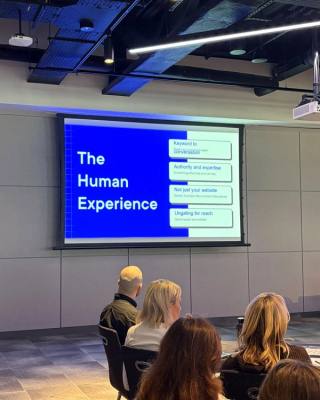Is the internet getting worse?
You’re not alone in asking this question, and it’s never been more relevant. The past months have seemed like a watershed moment for the internet, with the very nature of the online user experience being called into question.
As I’d like to argue here, things may be getting worse right now, but there are real signs for optimism, and massive opportunities for those willing to innovate and change in the face of adversity.
Web consolidation
Speaking about Apple during a recent appearance on the Joe Rogan podcast, Mark Zuckerberg made the provocative claim that:
They haven't invented anything great in a while. It's like Steve Jobs invented the iPhone, and now they're just kind of sitting on it 20 years later
Ironically, the same judgement could be made against Zuckerberg’s own company, Meta. Since 2010, Facebook’s profits have increased from $370 million to $39 billion. That represents a hundred-fold rise in profit for the company. Yet we might question if this financial growth stems from actual innovation, or if instead Meta is simply benefiting from breakthroughs that they made over a decade ago. Most of Meta’s recent success stems from strategically adopting features from competitors and repackaging them for their massive existing user base. Instagram’s stories (from Snapchat) and reels (from TikTok) are the most obvious examples.
Zooming out, a similar pattern can be seen amongst the other giants of the tech sector. A period of breakneck innovation, growth and market capture occurred in the late 2000s and early 2010s, followed by a decade of consolidation and profit. As competitors have been bought up and driven out of the market, the internet has become dominated by a small number of increasingly powerful firms, all of whom can control their respective niches. As with any process of monopolisation, this has come at the expense of the end user. 15 years ago, tech firms needed to compete on price and product in order to attract new users. Now, Meta, Amazon and Google are the only games in town, and they can focus on extracting revenues rather than providing real value.
A moment of crisis
The downsides of this consolidation are quickly becoming clear. Facebook is now full of “AI Slop”, generated by users in order to farm engagement, which is then rewarded through the Creator Bonus Programme. X (formerly Twitter) is swarming with engagement seeking bots, all of whom make it almost impossible for real humans to actually interact with one another. Instagram feeds are jammed full of ads, and Youtube, which was once ad-free, is now placing 20 second commercials ahead of videos.
Social media is also losing its hard-won status as a space for credible information and news. Meta has recently adopted X’s approach to fact-checking, with site users now responsible for adding community notes to misleading content. In isolation, this is a workable solution, but it fails to actually deter or ban those who seek to profit off of misinformation. Political and cultural concerns aside, this simply reduces the credibility of all the content that users consume on these platforms. This is only reinforced by engagement optimised algorithms, which push less relevant (but more engaging) posts higher onto users' feeds, at the expense of actual information and news.
It might be tempting to view these changes through the lens of short-term political and personal factors, but this should be resisted. Does the return of “masculine energy” at Meta stem from Zuckerberg’s decision to take up Brazilian jiu jitsu and meat smoking? Probably not. And whilst Trump’s recent electoral victory is certainly important, it has only accelerated trends that have been long in the making. As conservative commentators have long bemoaned, social media politicisation is nothing new, and now the boot has simply moved to the other foot. In practice, large social media companies are seeking to capitalise on their powerful market position, and will work with whoever necessary in order to do so.
The result is an internet experience that is built around mindless, aimless, and useless entertainment. In the past I would use social media to see what my friends were up to, check the news, or engage on a forum or facebook group. Now I simply open these platforms to pass the time. I doubt that I am alone in this experience.
The wheel turns
Every cloud has a silver lining. As monopolistic companies seek to derive higher profits from worse user experiences, a gateway of opportunity is being opened to younger, more hungry, challengers. The rapid rise of Bluesky is an illustrative example, which has exploded in popularity largely thanks to the negative experiences of X users.
As the large platforms that have swallowed up the internet now begin to stagnate, the appeal of smaller and more tightly controlled websites has risen in response. Marketing on social media is increasingly chaotic, risky, and unpredictable, but a private website can provide a calm garden in the midst of this wild jungle. By refocusing on their own digital platforms, companies can better control their brand messaging and associations, and provide more valuable experiences than otherwise possible for their users and clients. As the great empires of the internet decay, these smaller, more focused, and more cohesive sites will reap the rewards.
Of course, as anybody born before 2000 can attest, this would not be a completely new development, but rather a return to a pre-social media internet. Who remembers the “blogosphere” of individuals sharing content on personal websites? With the increasing popularity of platforms such as Substack, Medium, and Patreon, such an internet doesn’t seem as far away as it once did. As Mark Twain put it:
History doesn't repeat itself, but it often rhymes
Navigating the currents
In the face of such deep rooted and uncontrollable changes to the very structure of the internet, we might feel completely helpless. However, moments of change and chaos represent opportunities as well as challenges. If the internet is to become a worse environment for users, then it is more important than ever to build focused, informative, and useful experiences for those who interact with your platform. Likewise, it may be the time to disperse your eggs into different baskets, and avoid relying too heavily on one platform in particular. Most of all, by retreating to the one area of the internet that you can actually control, AKA your website, you can weather the storm and emerge stronger than ever before.









